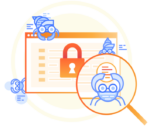
Microsoft announced that it is acquiring jClarity to support their continued contributions to open source while driving increased performance for Java workloads on Azure. jClarity is a leading contributor for AdoptOpenJDK, an open-source OpenJDK binaries project.
“The jClarity team are JVM experts who have helped their customers optimize their Java applications while also providing leadership and support within the Java open source community,” Microsoft wrote in a blog post. “Microsoft Azure and jClarity engineers will be working together to make Azure a better platform for our Java customers, and internal teams, improving the experience and performance of the platform for Java developers and end-users.”
Julia 1.2 released
The Julia programming language development team has introduced Julia 1.2. The latest version contains no breaking changes, new features, performance improvements, and marginal, undisruptive changes in behavior. The release does not have long term support.
New language features include argument splatting, which can now be used in calls to the new pseudo-function in constructors, support for Unicode 12.0, and added “⋆ (\star)” as a unary operator.
The detailed list of changes is available here.
Eggplant announces its automated testing capability
Intelligent automation provider Eggplant announced its new automated testing capability in which organizations can now automate the creation and execution of tests tailored to user journeys.
With the use of AI, Eggplant’s solution enables continuous tracking of real customer insights by non-intrusively tracking users movements through a website or application, and it can connect to any system, on any device and on any platform, the company explained.
“We have brought customer insight data into DevOps in a non-intrusive, platform-agnostic way that delivers high-quality business-critical testing in one place,” said Gareth Smith, the CTO of Eggplant. “Organizations can now identify problems before they occur, while also analyzing the most valuable user journeys that have the biggest impact on the business.
Stoplight announces new API visual editor
API design management company Stoplight launched API Design Studio, which is aimed at driving scalable API design-first development.
According to the company, the solution supports both veteran and first-time OpenAPI developers to design and create APIs and includes no code mocking, which accelerates development cycles.
“As the demand for APIs skyrockets, organizations need some channel through which they can collaborate to define and roll out enterprise-wide API design standards,” said Marc MacLeod, the CEO of Stoplight.
Databricks announces a Unified Analytics Platform
Databricks announced that its Unified Analytics Platform now offers automation and augmentation throughout the machine learning lifecycle.
The new AutoML capabilities include a AutoML Toolkit, an end-to-end machine learning pipeline, automated model search, automated hyperparameter tuning, and integration with Azure Machine Learning.
“By introducing the concept of ‘low-code’ and ‘no-code’, AutoML represents a fundamental shift in the way organizations approach machine learning and data science. With the right automation, AutoML can dramatically shorten time-to-value for data science teams,” said Adam Conway, the vice president of product management at Databricks.






